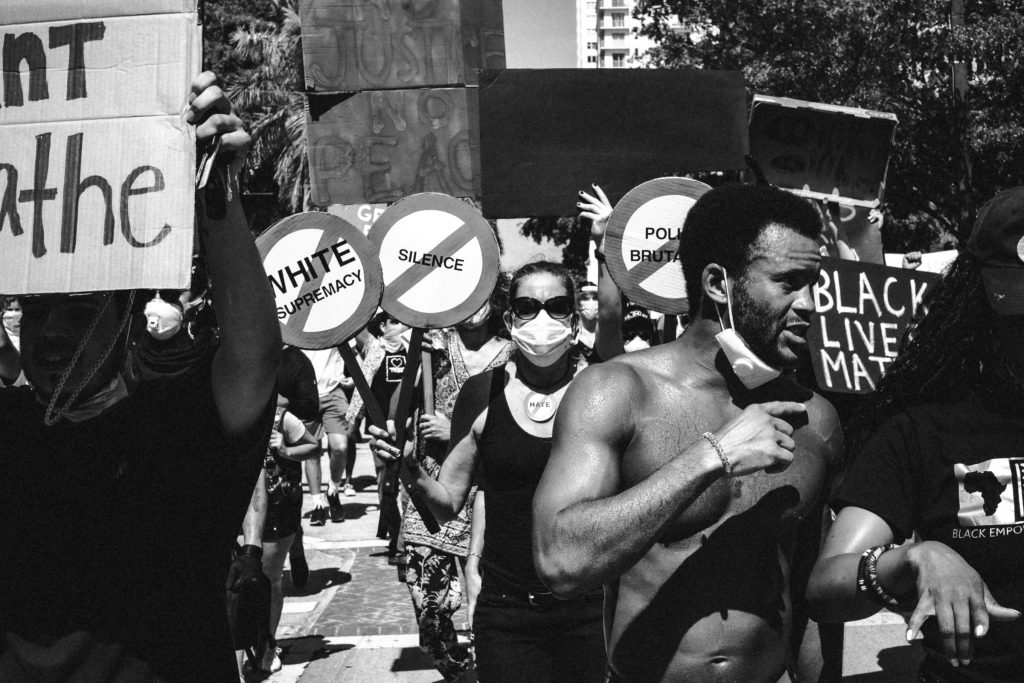This post is also available in Dutch.
Sparked by the murder of George Floyd in the U.S., anti-racism sentiment whirled across the ocean and gave rise to protests in the Netherlands, throughout Europe, and around the world. Dialogue about racism is tough—often avoided, tense, and misunderstood—as it threatens to cause confrontation with the darker, iniquitous aspects of ourselves and our histories.
Modern discussions about racism include not only generally known acts like violence, name-calling, and stereotyping, but also large-scale concepts: the distinct mode of discrimination created from the combination of someone’s social and political identities (intersectionality); the set of advantages, entitlements, and benefits conferred upon people solely because they are white (white privilege); and indirect, sometimes subtle slights toward a person from a marginalized community (microaggressions).
Racial discrimination does not solely refer to overt acts of hate and bigotry. Instead, it encompasses a wide range of implicit and explicit biases and behaviors at various levels of interaction, metastasizing into a chorus of systemic racism. Confronting racism in its multiple guises dares us to admit that we are complicit and guilty at some level. Understanding how it pervades our work, friends, family, and community calls for thoughtful, personal, and psychological work.
Confront yourself
When accused of doing something racist, most people immediately retort with a resounding “I’m not racist!”, subsequently spewing numerous random examples of how they are, indeed, a tolerant multicultural human of the world. A 2019 study on perceptions of racist behavior found that when we observe other people engaging in racist acts, we label them as racist—but when we engage in those same behaviors, we fail to label ourselves as racist.
A few different psychological mechanisms prevent people from recognizing their own racism. People tend to consistently rate themselves as better than average in almost every trait, including morality. We also know that if people think they know enough about something, even though they don’t, they’re less likely to be curious enough to explore it further. Confronting people with the fact that they are involved in or responsible for something racially biased usually results in strong retaliation or, in an effort to avoid cognitive dissonance, evasion of dialogue (because then they’d have to ask: “How can I be guilty of a racist act when I am a good person?”).
Collective responsibility
Systemic racism springs from individual acts of racism. In other words: We are the system. Self-reflection at the individual level is part of and leads to overall societal change. Each of us can be complicit in and carry a responsibility for racism. This is not to say that there aren’t hateful extremist xenophobes, chauvinists, and bigots out there. However, on a sliding scale of one to ten—ten being a blatant extreme, and one being a subtle unintentional form of discrimination—the point is that it’s all still racism. Collective complicity is just as insidious; denial of racism is a form of racism. Our collective psychological blindness and naivete has led us to this particular moment.
Just as the current movement demands (as did each iteration of it in the past) that we detect and take responsibility for times when our thoughts and actions are out of sync with our declared values, it also poses the same question to larger entities: Does diversity at higher levels of institutional and governmental agencies match their declared values? Increased awareness must translate into actual change in prevention and policy.
Original language: English
Author: Christienne Gonzales Damatac
Buddy: Francie Manhardt
Editor: Monica Wagner
Translator: Jill Naaijen
Editor Translation: Floortje Bouwkamp
